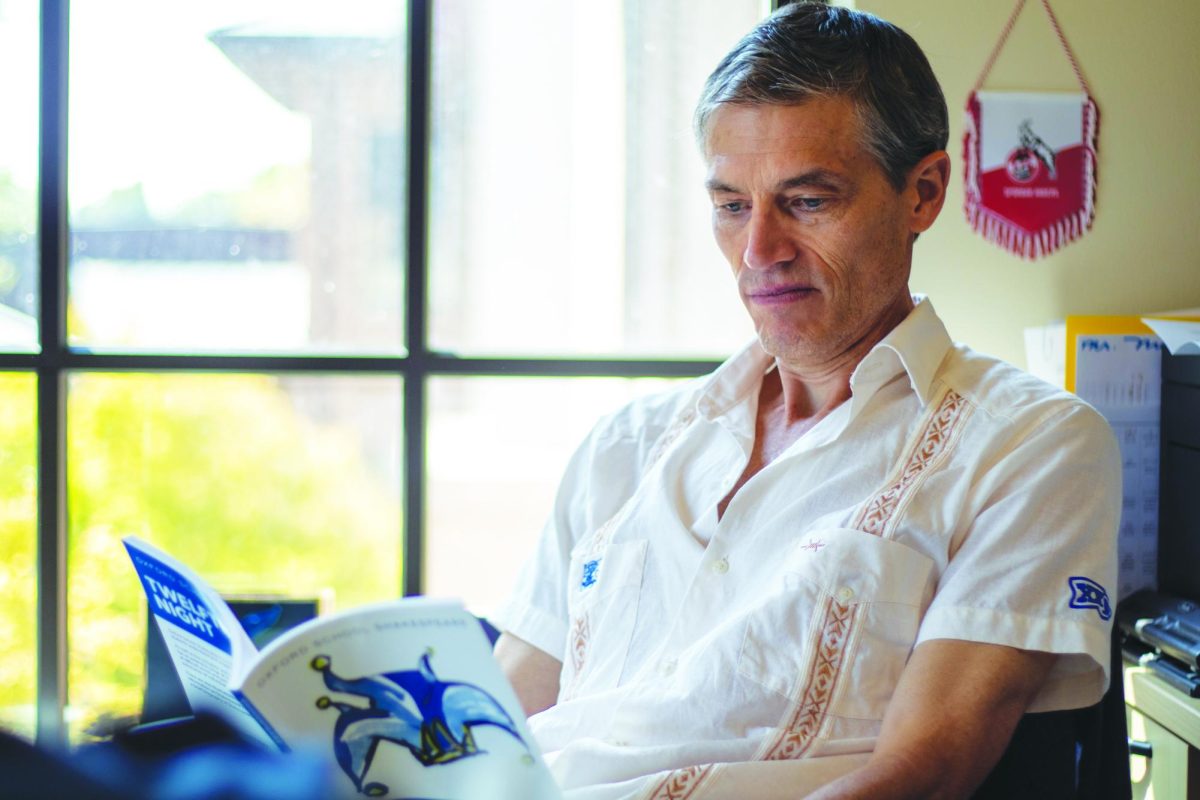Confidence in one’s learning is a factor that affects many students’ participation in class, especially in courses that focus on in-class discussion or speaking, such as foreign language and English.
According to a primer written by the American Psychological Association, low self-esteem can make students hesitate before engaging in discussion or taking risks.
Language Department Chair and Spanish instructor Zachary Erwin ‘96 also dealt with a lack of confidence during his time studying Spanish as a student at the school. Afraid of making mistakes, Erwin struggled with oral exams, often feeling worried and anxious during them. But, through an opportunity to study in Spain during the summer of his junior year, he built confidence in his speaking skills.
“I tended to do well on written tests and didn’t feel particularly shy about speaking up in class, but I got extremely nervous during oral assessments because I was so afraid to make mistakes,” Erwin said. “Then, I studied in Spain for a few weeks with a group of St. Mark’s boys led by Sra. Marmion during the summer between my junior and senior years. My overall language skills got better, but even more importantly, my self-confidence in using the language improved immensely.”
Today, Erwin applies similar ideas to try to help his students in his Spanish classes. He believes that one of the best ways to improve confidence in speaking a foreign language is to simply speak more in that language, something he had to do during his trip in high school. But, with students who lack confidence being less likely to speak up in class or use Spanish when speaking in class, Erwin uses a couple of tactics to try to encourage more active class participation.
“To encourage students to speak up more in class, I try to emphasize that mistakes are a perfectly normal—and even necessary—parts of language learning, and that we don’t have to speak with perfect grammar or pronunciation in order to communicate our ideas and get more oral practice,” Erwin said. “Like most other language teachers, I also frequently put students in pairs or small groups so that they can practice using the target language without the pressure of speaking to the whole class.”
Much like Upper School, Lower School teachers prioritize the development of student confidence. According to Ackerman Family Master Teaching Chair in Lower School Teri Broom, one of the most important things to emphasize with first graders is that it is okay to make mistakes.
“When they first come to us, there are some who are overconfident, there are some who are really shy, and there are (students) who think they have to measure up in this certain way with their abilities,” Broom said. “So we think it’s really important to let them know from the beginning that it’s okay to not know things.”
For example, in math class, Broom teaches different strategies for arithmetic, and encourages students to speak up about the different techniques they would use to solve problems.
“That kind of discussion that we have in math class every day builds their confidence just because we’re always talking together about those things, and you have the rapport to build a relationship,” Broom said. “Sometimes, I’ll say, ‘oh my gosh, I’m so glad you got that wrong because that’s a really common mistake,’ and so we talk about what the common mistakes could be, and how, now that we know what they might be, we can avoid them and turn it into a learning moment.”
One particular method Broom uses while teaching is to make sure every boy has a chance to participate.
“When I’m teaching, I will call on every boy once before I’ll call on any boy twice,” Broom said. “The expectation is that they could get called on, even if they don’t raise their hand. I think they get used to that, and they learn that they have to be ready, so their attention has to be a little better.”
The emphasis on building confidence extends to even outside of the classroom. In drama classes, Lower Schoolers participate in improv games and quick-witted exchanges that get them more comfortable with speaking, and every week, each first grader has to present a poem in front of the class.
“(There’s also) the expectation that when they come in every day, they say good morning to us by name, and then we always say good morning to them by name,” Broom said. “They don’t start that way; for about a week, I greet them and ask them, ‘how are you doing today?’ And they just say, ‘good,’ and walk away. After a little while, I bring it to their attention, and they start buying into that. They’re kind of just inundated with these expectations but in a nurturing, safe way.”







